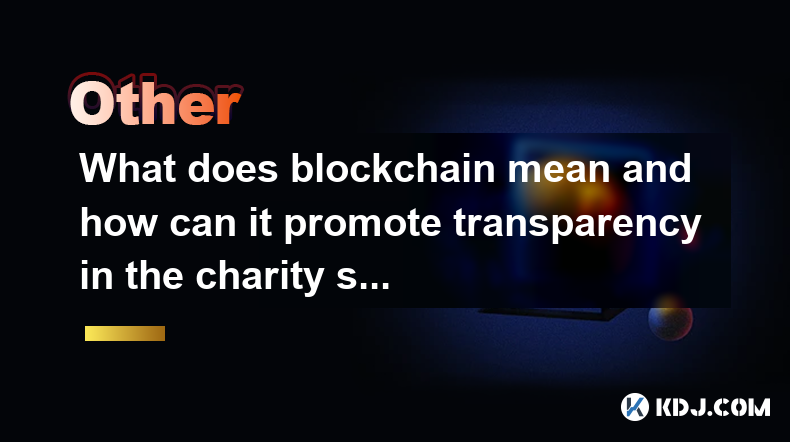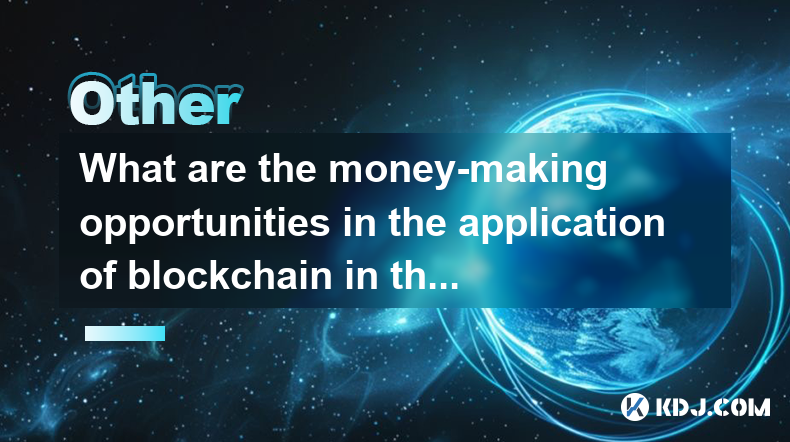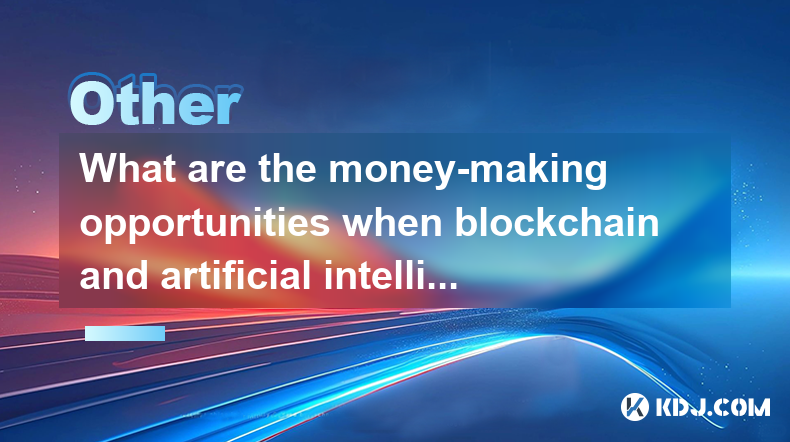-
 Bitcoin
Bitcoin $83,197.6833
-0.01% -
 Ethereum
Ethereum $1,805.1793
-1.02% -
 Tether USDt
Tether USDt $0.9998
-0.04% -
 XRP
XRP $2.0669
0.67% -
 BNB
BNB $595.9636
-1.75% -
 USDC
USDC $1.0000
-0.02% -
 Solana
Solana $116.7502
-1.93% -
 Dogecoin
Dogecoin $0.1650
-0.49% -
 Cardano
Cardano $0.6539
0.65% -
 TRON
TRON $0.2380
0.68% -
 UNUS SED LEO
UNUS SED LEO $9.5928
1.54% -
 Toncoin
Toncoin $3.5076
-7.01% -
 Chainlink
Chainlink $12.9118
-1.23% -
 Stellar
Stellar $0.2610
-0.62% -
 Avalanche
Avalanche $18.4476
-0.78% -
 Sui
Sui $2.2240
-5.35% -
 Shiba Inu
Shiba Inu $0.0...01220
-0.84% -
 Hedera
Hedera $0.1622
-0.88% -
 Litecoin
Litecoin $83.8744
0.38% -
 Polkadot
Polkadot $4.0416
0.49% -
 Bitcoin Cash
Bitcoin Cash $308.7388
1.65% -
 MANTRA
MANTRA $6.3205
-0.73% -
 Bitget Token
Bitget Token $4.4916
-1.17% -
 Dai
Dai $1.0000
-0.01% -
 Ethena USDe
Ethena USDe $0.9996
-0.01% -
 Monero
Monero $215.6386
0.41% -
 Hyperliquid
Hyperliquid $11.5782
-5.78% -
 Pi
Pi $0.5558
-13.35% -
 Uniswap
Uniswap $5.9289
-1.28% -
 Aptos
Aptos $5.0280
-4.28%
What does blockchain mean and how can it promote transparency in the charity sector?
Blockchain enhances charity transparency by tracking donations in real-time, reducing intermediaries, and using smart contracts, ensuring funds are used as intended.
Apr 03, 2025 at 08:29 pm

Blockchain technology is a decentralized, distributed ledger that records transactions across numerous computers. This ensures that the data is transparent and nearly impossible to alter retroactively. Essentially, blockchain serves as a digital ledger of all cryptocurrency transactions, enabling secure and direct exchanges without the need for intermediaries. This technology gained prominence with the advent of Bitcoin but has since expanded into various sectors, including finance, supply chain management, and, notably, the charity sector.
The core principle of blockchain is its ability to provide a high level of transparency and accountability. Each transaction on the blockchain is recorded in a block and linked to the previous block, forming a chain. This chain is visible to all participants in the network, making it easy to track and verify transactions. In the context of charities, this transparency can significantly enhance the trust between donors and organizations, ensuring that funds are used as intended.
How Blockchain Enhances Transparency in Charities
Blockchain can revolutionize the charity sector by providing an immutable record of donations and their use. Traditional charity models often suffer from a lack of transparency, where donors may not know exactly how their contributions are being utilized. With blockchain, every donation can be tracked from the donor to the end beneficiary, ensuring that funds are not misused or diverted.
Donation Tracking: Blockchain allows for real-time tracking of donations. Donors can see exactly where their money goes, from the initial donation to the final expenditure. This level of detail can increase donor confidence and encourage more contributions.
Reduced Intermediaries: By eliminating the need for intermediaries, blockchain can reduce the costs associated with processing donations. This means more of the donated funds can go directly to the cause, rather than being absorbed by administrative fees.
Immutable Records: Once a transaction is recorded on the blockchain, it cannot be altered. This ensures that the history of donations and expenditures is preserved accurately, providing a verifiable audit trail.
Smart Contracts: Blockchain can utilize smart contracts to automate the release of funds based on specific conditions being met. For example, funds can be released to a project only when certain milestones are achieved, ensuring that the money is used effectively.
Case Studies of Blockchain in Charity
Several organizations have already begun to leverage blockchain to improve transparency in the charity sector. Here are a few notable examples:
BitGive: BitGive is one of the first charities to use blockchain technology. They have developed a platform called GiveTrack, which uses blockchain to provide transparency in how donations are used. Donors can track their contributions and see the impact of their donations in real-time.
UNICEF: UNICEF has launched a cryptocurrency fund to accept donations in Bitcoin and Ethereum. The fund uses blockchain technology to ensure that the donations are traceable and used effectively for their programs. This has helped UNICEF to reach a broader audience and increase trust among donors.
The Water Project: The Water Project is another organization that has embraced blockchain to enhance transparency. They use blockchain to track donations and show donors the direct impact of their contributions on water projects in developing countries. This has led to increased donor engagement and support.
Challenges and Considerations
While blockchain offers significant benefits for transparency in the charity sector, there are also challenges and considerations to keep in mind.
Technical Barriers: Not all charities may have the technical expertise or resources to implement blockchain solutions. This can be a significant barrier, especially for smaller organizations.
Regulatory Uncertainty: The regulatory environment for blockchain and cryptocurrencies is still evolving. Charities need to navigate these uncertainties and ensure compliance with existing laws and regulations.
Public Perception: Despite the potential benefits, there is still a degree of skepticism and misunderstanding about blockchain and cryptocurrencies among the general public. Charities need to educate their donors about how blockchain can enhance transparency and accountability.
Scalability: Blockchain networks can face scalability issues, particularly when handling a large volume of transactions. Charities need to consider whether the blockchain solution they choose can handle their donation volumes effectively.
Future Prospects
The future of blockchain in the charity sector looks promising. As the technology matures and more organizations adopt it, we can expect to see even greater transparency and accountability.
Increased Adoption: As more charities see the benefits of blockchain, adoption is likely to increase. This could lead to a more transparent and efficient charity sector overall.
Integration with Other Technologies: Blockchain could be integrated with other emerging technologies, such as AI and IoT, to further enhance its capabilities. For example, AI could be used to analyze blockchain data and provide insights into donation patterns and impact.
Global Impact: Blockchain has the potential to have a global impact on the charity sector. By providing a transparent and secure way to track donations, it could help to bridge the trust gap between donors and organizations worldwide.
Innovation in Fundraising: Blockchain could lead to new and innovative ways of fundraising. For example, tokenized donations could allow donors to receive a token representing their contribution, which could be used for future donations or even traded on a marketplace.
Common Questions Related to Blockchain and Transparency in Charity
Q: What is blockchain technology?
A: Blockchain technology is a decentralized, distributed ledger that records transactions across multiple computers. It ensures transparency and security by making the data immutable and visible to all participants in the network. Blockchain gained prominence with Bitcoin but is now used in various sectors, including charity.
Q: How can blockchain promote transparency in the charity sector?
A: Blockchain can promote transparency in the charity sector by providing an immutable record of donations and their use. It allows for real-time tracking of donations, reduces the need for intermediaries, and uses smart contracts to automate fund releases based on specific conditions. This ensures that donors can see exactly how their contributions are being used.
Q: Are there any charities currently using blockchain technology?
A: Yes, several charities are already using blockchain technology. Examples include BitGive with their GiveTrack platform, UNICEF with their cryptocurrency fund, and The Water Project, which tracks donations and their impact on water projects in developing countries.
Q: What are the challenges of implementing blockchain in the charity sector?
A: The challenges include technical barriers for smaller organizations, regulatory uncertainty, public perception, and scalability issues. Charities need to navigate these challenges to effectively implement blockchain solutions.
Q: What is the future of blockchain in the charity sector?
A: The future looks promising, with increased adoption, integration with other technologies, potential global impact, and innovation in fundraising. As blockchain matures, it could lead to a more transparent and efficient charity sector overall.
Disclaimer:info@kdj.com
The information provided is not trading advice. kdj.com does not assume any responsibility for any investments made based on the information provided in this article. Cryptocurrencies are highly volatile and it is highly recommended that you invest with caution after thorough research!
If you believe that the content used on this website infringes your copyright, please contact us immediately (info@kdj.com) and we will delete it promptly.
- Solana (SOL) Price Drops ~4% as Whales Unlock 200M Tokens, Targeting a Retest of the Rising Trendline
- 2025-04-04 15:10:11
- Dogecoin (DOGE) Has Emerged as a Standout Performer, Defying Broader Market Downturns
- 2025-04-04 15:10:11
- Bitcoin (BTC) Price Prediction: Oversold Market and Reactions to U.S. Tariffs May Be a Thing of the Past
- 2025-04-04 15:05:12
- XYZVerse (XYZ): Is a 30x Jump Possible?
- 2025-04-04 15:05:12
- As the Meme Coin Bubble Bursts, Investors Flee to Coldware (COLD)
- 2025-04-04 15:00:11
- Hamster Kombat GameDev Heroes Daily Cipher Codes And Combo Cards Today April 4, 2025
- 2025-04-04 15:00:11
Related knowledge

What are the future development trends of blockchain game development?
Apr 03,2025 at 05:00am
Blockchain technology has revolutionized various industries, and gaming is no exception. As we look to the future, several trends are set to shape the development of blockchain games. These trends not only promise to enhance the gaming experience but also to integrate blockchain technology more seamlessly into the gaming ecosystem. Let's explore these t...

What are the maintenance costs of blockchain system development?
Apr 03,2025 at 06:07pm
The maintenance costs of blockchain system development are multifaceted and depend on various factors. These costs can include technical maintenance, security updates, infrastructure expenses, and personnel costs. Understanding these elements is crucial for anyone planning to develop or maintain a blockchain system. Technical MaintenanceTechnical mainte...

What are the money-making models of blockchain games?
Apr 04,2025 at 02:00pm
Blockchain games have emerged as a revolutionary way for players to earn real money while enjoying their favorite pastime. These games leverage the power of blockchain technology to create unique money-making models that benefit both the players and the developers. In this article, we will explore the various money-making models of blockchain games and ...

What are the money-making opportunities in the application of blockchain in the medical industry?
Apr 03,2025 at 03:35am
The integration of blockchain technology into the medical industry presents a myriad of money-making opportunities that can revolutionize healthcare systems. Blockchain's inherent characteristics, such as transparency, security, and immutability, make it an ideal solution for various medical applications. By leveraging blockchain, companies can develop ...

What are the money-making opportunities when blockchain and artificial intelligence are combined?
Apr 04,2025 at 01:28am
The convergence of blockchain and artificial intelligence (AI) presents a myriad of money-making opportunities within the cryptocurrency circle. This fusion leverages the decentralized and secure nature of blockchain with the analytical prowess of AI, creating innovative solutions and platforms that can generate significant revenue. From enhancing tradi...

What does blockchain mean and how can it promote transparency in the charity sector?
Apr 03,2025 at 08:29pm
Blockchain technology is a decentralized, distributed ledger that records transactions across numerous computers. This ensures that the data is transparent and nearly impossible to alter retroactively. Essentially, blockchain serves as a digital ledger of all cryptocurrency transactions, enabling secure and direct exchanges without the need for intermed...

What are the future development trends of blockchain game development?
Apr 03,2025 at 05:00am
Blockchain technology has revolutionized various industries, and gaming is no exception. As we look to the future, several trends are set to shape the development of blockchain games. These trends not only promise to enhance the gaming experience but also to integrate blockchain technology more seamlessly into the gaming ecosystem. Let's explore these t...

What are the maintenance costs of blockchain system development?
Apr 03,2025 at 06:07pm
The maintenance costs of blockchain system development are multifaceted and depend on various factors. These costs can include technical maintenance, security updates, infrastructure expenses, and personnel costs. Understanding these elements is crucial for anyone planning to develop or maintain a blockchain system. Technical MaintenanceTechnical mainte...

What are the money-making models of blockchain games?
Apr 04,2025 at 02:00pm
Blockchain games have emerged as a revolutionary way for players to earn real money while enjoying their favorite pastime. These games leverage the power of blockchain technology to create unique money-making models that benefit both the players and the developers. In this article, we will explore the various money-making models of blockchain games and ...

What are the money-making opportunities in the application of blockchain in the medical industry?
Apr 03,2025 at 03:35am
The integration of blockchain technology into the medical industry presents a myriad of money-making opportunities that can revolutionize healthcare systems. Blockchain's inherent characteristics, such as transparency, security, and immutability, make it an ideal solution for various medical applications. By leveraging blockchain, companies can develop ...

What are the money-making opportunities when blockchain and artificial intelligence are combined?
Apr 04,2025 at 01:28am
The convergence of blockchain and artificial intelligence (AI) presents a myriad of money-making opportunities within the cryptocurrency circle. This fusion leverages the decentralized and secure nature of blockchain with the analytical prowess of AI, creating innovative solutions and platforms that can generate significant revenue. From enhancing tradi...

What does blockchain mean and how can it promote transparency in the charity sector?
Apr 03,2025 at 08:29pm
Blockchain technology is a decentralized, distributed ledger that records transactions across numerous computers. This ensures that the data is transparent and nearly impossible to alter retroactively. Essentially, blockchain serves as a digital ledger of all cryptocurrency transactions, enabling secure and direct exchanges without the need for intermed...
See all articles




















































































